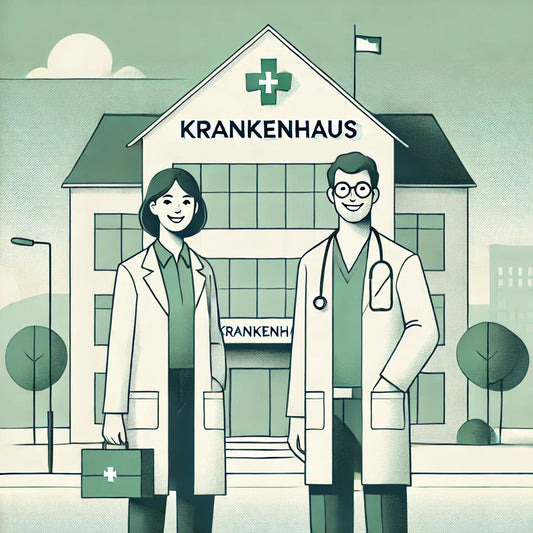For aspiring medical professionals, pursuing a residency in Germany is a compelling pathway to an advanced career. As a foreign doctor in Germany, the opportunity to practice and specialize in a well-established healthcare system is both rewarding and enriching. Many international medical graduates are now exploring options for PG in Germany after MBBS, especially since it allows them to advance their careers without the need for the NEET exam.
This guide provides essential insights and steps on how to navigate the process of becoming a practicing doctor in Germany, highlighting the common countries of origin, language requirements, and necessary documentation for foreign-trained doctors.
Doctor Statistics 2023: Foreign Doctors in Germany

The chart above provides a comprehensive overview of the increasing number of foreign doctors in Germany from 2000 to 2023. The growth in the number of foreign doctors highlights Germany’s reliance on international medical professionals to meet the healthcare demands of its population.
2016-2020: The upward trajectory continued robustly, with the number of foreign doctors growing from 41,658 in 2016 to 56,107 in 2020. This steady increase indicates Germany's continued dependence on foreign medical professionals to fill residency positions and other critical roles. Many foreign doctors view Germany as an ideal destination for Residency in Germany and further courses after MBBS.
2021-2023: The most recent years show an even sharper increase. In 2021, there were 59,883 foreign doctors in Germany, which grew to 63,767 in 2022 and peaked at 63,767 in 2023. This spike underscores the urgent need for healthcare professionals in Germany and the growing appeal of residency in Germany for foreign doctors. As the country continues to seek skilled professionals, understanding the eligibility for medical courses after MBBS without NEET becomes increasingly important for prospective applicants out of India.
Most Common Countries of Origin for Foreign Doctors in Germany

Bundesärztekammer- Ärztestatistik 2023
Most of the doctors registered with the Medical Association come from EU countries. The chamber also sees an influx from other European countries and the Middle East. The majority of immigrant doctors come from the following countries:
- Syria (6,120)
- Romania (4,668)
- Austria (2,993)
- Greece (2,943)
- Russia (2,941)
- Turkey (2,628)
How Can Foreign Doctors From Inside EU Work in Germany?

- EU state-recognized license to practice medicine
- Certificate of German language skills at B2 or C1 level
- Fachsprachenprüfung or Medical German Language Exam
Applying for Medical Courses From Outside EU: Pathway for Foreign Doctors

For those applying for medical courses without NEET and aiming to practice as a doctor in Germany from outside the EU, several requirements must be met. Here is a short guide to medical residency in Germany for foreigners.
The Federal Ministry of Health can provide information on whether a degree is recognized. Foreign doctors can also submit their documents to the relevant state examination office for medical professions for evaluation. Applicants must submit the following documents, translated into German, for Licensing, called Approbation:
- Proof of completed medical education, known as MBBS
- Proof of the mandatory 12-month clinical rotation, called Internship
- Proof of identity and CV
- Declaration of no criminal record and, if applicable, (official) certificate of good conduct
- Medical certificate
- Proof of existing medical license to practice
- Confirmation of employment or continued employment from the future employer
- Proof of German language skills at B2 or C1 level
- Proof that no professional disciplinary action is pending in the country of origin
Language Courses and Requirements for PG in Germany
FSP Vocab Trainer- Start your FSP Preparation Today
Foreign doctors can take a language course before traveling to Germany. They can attend courses for B2 and C1 levels and take the corresponding exams at the Goethe-Institute/Telc institutes.
Other options mastering German as a foreign doctor for the Fachsprachenprüfung exam include applying for a temporary license or Berufserlaubnis. Foreign doctors can work as guest doctors and get paid a full salary of doctor in Germany while working. It is however, necessary, to find a suitable employer in advance. A hospitation can also be the first step towards working as a doctor in Germany for foreign doctors. During the guest doctor activity or hospitation, doctors can prepare for the recognition exams to obtain a German license to practice medicine. Learn how to master medical German and start with Fachsprachenprüfung preparation for Residency in Germany here.
Once you secure the permanent medical license in Germany, you can move from Approbation to finding employment.This is the essential step to starting a Residency in Germany for a foreign doctor.




